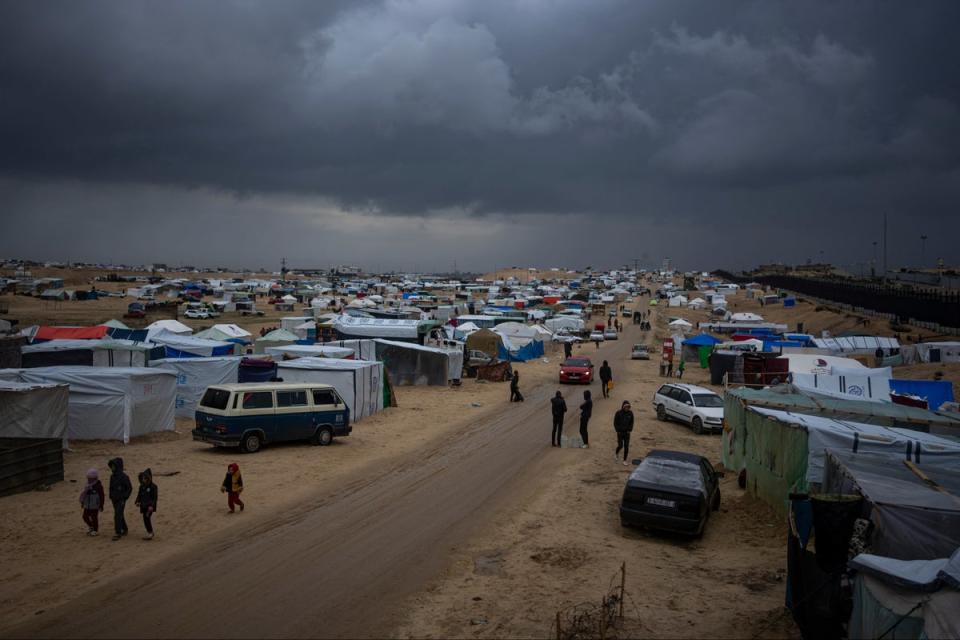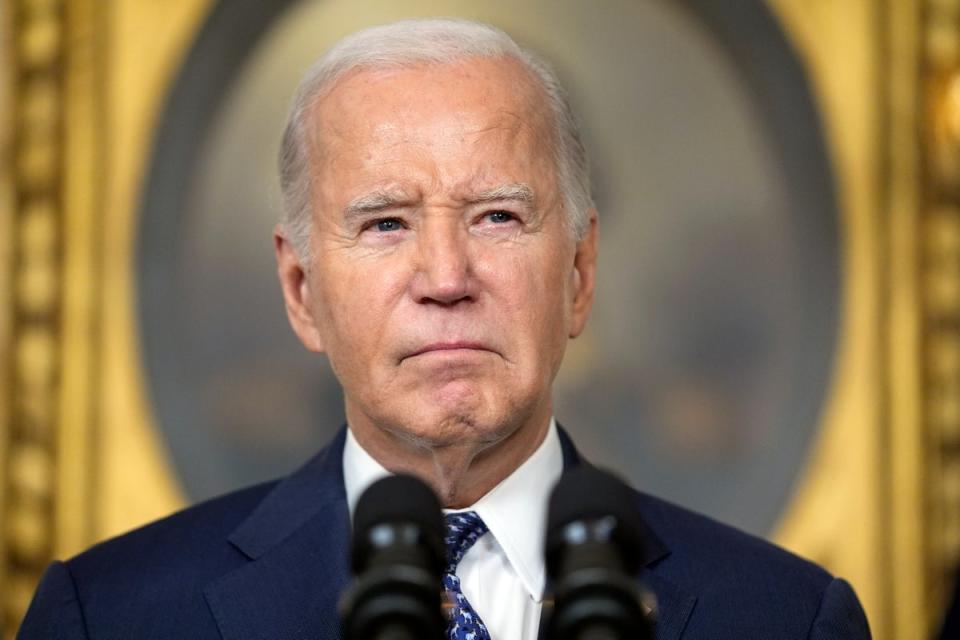Netanyahu dismisses pleas for Israel not to assault Gaza’s Rafah – despite warning of ‘bloodbath’
Israeli prime minister Benjamin Netanyahu has ordered his army to prepare a dual plan to evacuate and attack Rafah, the last refuge for Palestinians in Gaza, despite repeated warnings from aid agencies of a “bloodbath” and the US saying an assault would be “a disaster”.
Mr Netanyahu said it was “impossible” to achieve the goals of the war without going into the southern border city and eliminating what he claimed was the last stronghold of Hamas, who launched a bloody attack inside Israel on 7 October.
In a statement he said a “massive operation” was needed and ordered the military and security establishment “to submit to the cabinet a combined plan for evacuating the population and destroying the battalions".
Mr Netanyahu’s announcement directly flouts severe warnings by the US, Israel’s closest and most powerful ally, as tensions between the two countries have risen in recent days.
US president Joe Biden slammed Israel’s offensive in Gaza as “over the top” and promised his administration was “working tirelessly” to push for a truce, in his strongest condemnation of the conflict yet on Thursday.
“I’m pushing very hard now to deal with this hostage ceasefire,” President Biden said. “There are a lot of innocent people who are starving, a lot of innocent people who are in trouble and dying, and it’s got to stop.”

The US has flatly rejected Israel’s plans for Rafah, while the move has also alarmed Egypt, which has warned that any ground operation in the area or mass displacement across the border would undermine its 40-year-old peace treaty with Israel.
National Security Council spokesperson, John Kirby, said a ground offensive in Rafah was “not something we support”.
Vedant Patel, a US State Department spokesperson, warned pushing ahead with the assault now “with no planning and little thought, in an area where there is sheltering of a million people, would be a disaster”.
The US is worried about an escalating humanitarian disaster in Gaza and the global repercussions of Israel’s bombardment of the Strip, which Palestinian health officials say has killed a staggering 27,800 people.
The rising death toll and destruction threatens to trigger a region-wide war, as Iran-backed militias have pounded US military positions and global shipping routes in Iraq, Syria, Jordan and the Red Sea in retaliation.
Fearing more instability, US Secretary of State Antony Blinken travelled to the Middle East this week on his fifth visit to the region to press for a hostage deal. There had been hopes for a counter-offer presented by Hamas militants which included a four-and-a-half-month ceasefire, the phased release of all the captives and the withdrawal of Israeli troops.

However, Mr Blinken left empty-handed again, with Mr Netanyahu snubbing his calls for a truce with a message of “total victory”. Just ahead of Mr Blinken’s own press conference in Tel Aviv, Mr Netanyahu declared talks with Hamas were “going nowhere” and their ceasefire offer was “delusional”.
Israel has launched its heaviest ever bombardment of Gaza in retaliation for Hamas’s bloody attacks on southern Israel in which they killed around 1,200 people and took at least 250 hostage. Just under half the captives were released in a November ceasefire deal brokered by Qatar, but so far attempts for a new agreement have failed to materialise.
Meanwhile, Israel has expanded its devastating ground offensive in the besieged territory, pounding the southern town of Khan Younis.
It now wants to turn its attention on Rafah, home to around 1.5 million people – more than half the entire population of Gaza. The vast majority are families forced from their homes from across the Strip.
The United Nations has described the southern city as a “pressure cooker of despair”, and warned that people may have nowhere to escape to other than Egypt.
Cairo has repeatedly warned that the deployment of Israeli forces along its border, and any displacement of Palestinians into Egypt, may violate the decades-old peace treaty between the two countries.
Rights groups, meanwhile, warned that an offensive into Rafah would be a “bloodbath”.
“No war can be allowed in a gigantic refugee camp,” Jan Egeland, secretary-general of the Norwegian Refugee Council (NRC), said on Friday, adding that the only humanitarian aid coming into Gaza is being delivered through the city.
“Expanded hostilities in Rafah could collapse the humanitarian response,” the NRC added in a statement.
Philippe Lazzarini, the chief of the UN agency for Palestinian refugees (UNRWA), said an assault on the city would bring “endless tragedy”.
“People have absolutely no idea where to go after Rafah,” he added.
The war has levelled vast swathes of the tiny enclave, displacing 85 per cent of its population of 2.3 million Palestinians and pushing a quarter of residents towards starvation.


